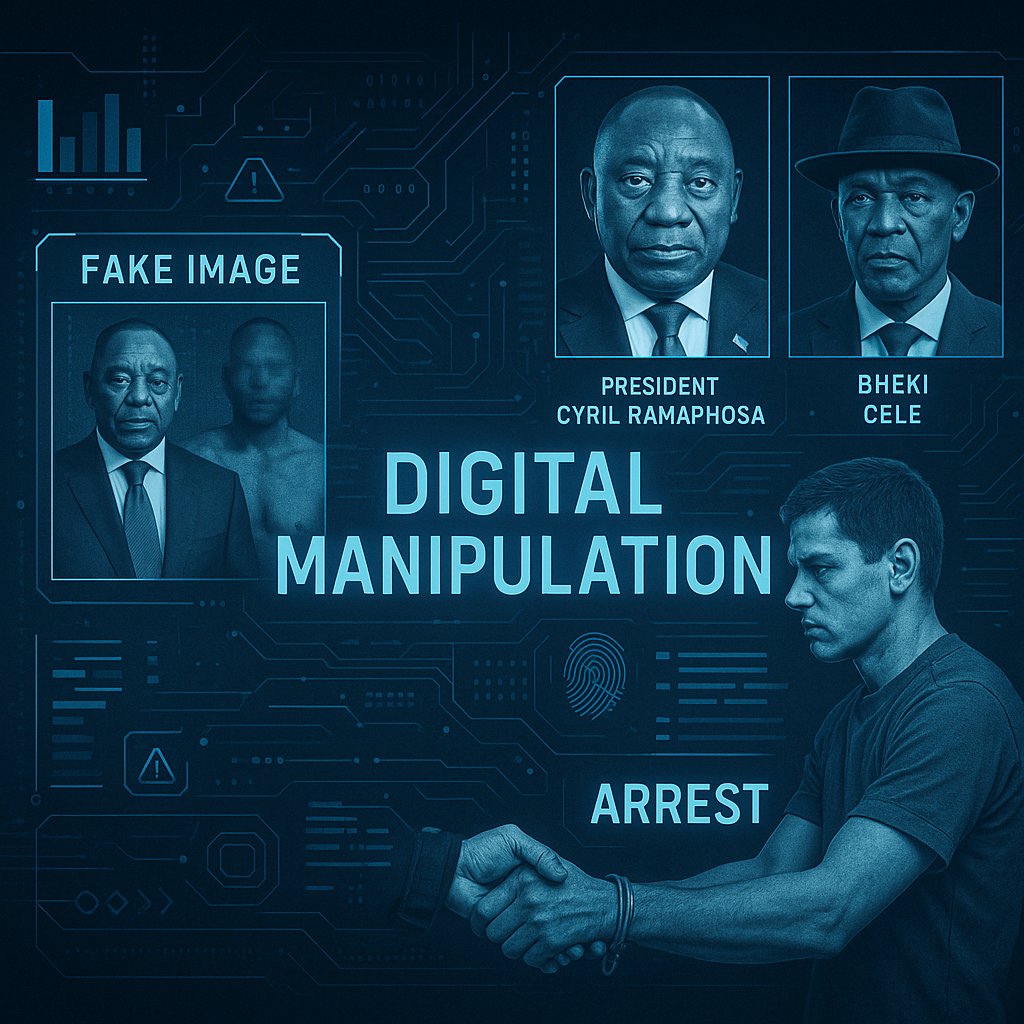Image created by AI
Man Receives Five-Year Sentence for Manipulating and Distributing Images of South African President and Officials
In a groundbreaking case that underlines the seriousness of digital misinformation and privacy violations, a South African court has sentenced a 36-year-old man, Scebi Nene, to five years of direct imprisonment. Nene's offenses involved the downloading and manipulation of images of significant public figures including President Cyril Ramaphosa and former Police Minister Bheki Cele.
Nene, formerly an employee at Coca-Cola in 2018, claimed he believed he was under surveillance and reported his suspicions to local police forces. Despite approaching both the Hawks and the Independent Police Investigative Directorate (IPID), his concerns were purportedly dismissed, which apparently provoked him into commencing his illicit activities.
According to Natasha Ramkisson Kara, spokesperson for the National Prosecuting Authority (NPA), Nene admitted in court to downloading and altering images of several officials. He digitally manipulated these images to incorporate sexual content with the intention of making them appear authentic and subsequently distributed them. During the proceedings, Nene expressed remorse for his actions.
The NPA has taken this opportunity to remind the public about the importance of using technology ethically and being aware of the legal consequences of misusing digital platforms. This case brings to the forefront the potential harms and legal implications associated with digital content manipulation. Moreover, it highlights the response of law enforcement agencies to digital crimes, which is increasingly significant in an era where digital content can be easily manipulated and disseminated widely.
This judgement not only serves as a deterrent against similar future offenses but also sparks a larger conversation about digital ethics, privacy rights, and the need for more robust frameworks to handle such violations effectively. As digital platforms continue to evolve, the responsibilities and legal implications associated with their use become increasingly complex, calling for heightened public awareness and stricter regulatory controls.
While digital technology offers immense benefits, this case is a stark reminder that it also requires cautious and responsible use. The misuse detailed in Nene's case shows the potential for significant harm to individuals' reputations and personal lives. It prompts a deeper examination of current laws and their adequacy in addressing and mitigating such threats.










